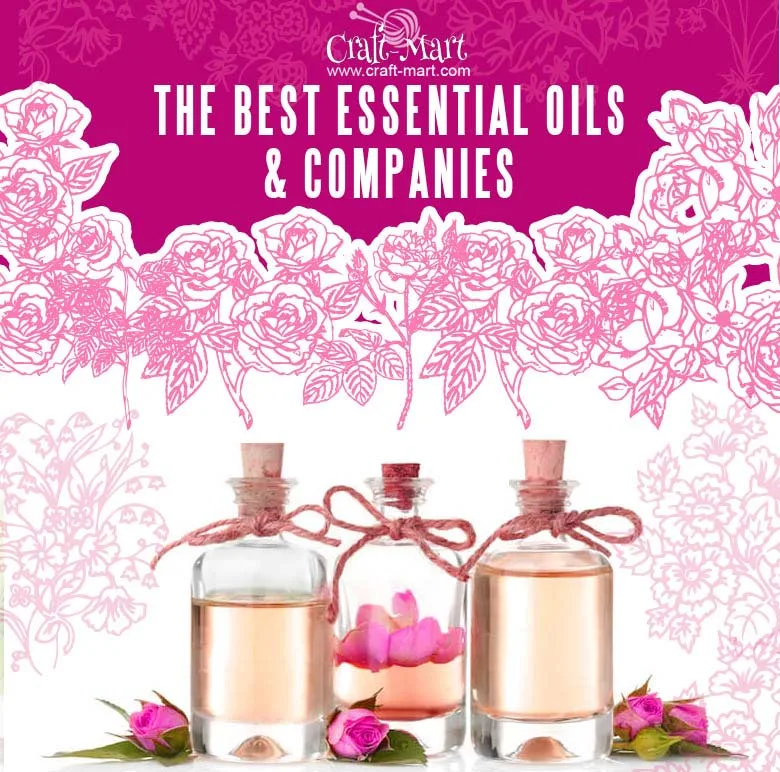 As with all other products that may influence your wellness or health, dealing with reputable essential oil companies will safeguard you from a number of problems. Some of the essential oils are really expensive like Agar or Rose oils, some are rather rare. You should ask yourself a question: “Whom should I trust more with my health: the top essential oil brands or unknown sellers from overseas?”
As with all other products that may influence your wellness or health, dealing with reputable essential oil companies will safeguard you from a number of problems. Some of the essential oils are really expensive like Agar or Rose oils, some are rather rare. You should ask yourself a question: “Whom should I trust more with my health: the top essential oil brands or unknown sellers from overseas?”
The best smelling essential oils for different tasks
Which essential oil smells the best?
There is no definitive answer to this question because we all like different smells or foods. Everyone has pleasant or unpleasant memories associated with different smells. Some individuals are very sensitive or even allergic to smells.
It also depends on how you are intending to use the essential oils. Diffusing pine tree or thyme oil is perfectly fine but using them as the perfume would be strange.
When choosing best smelling essential oils don’t fall into a trap of buying more affordable “fragrance oils” or “natural fragrance oils“.
Fragrance oils vs essential oils – know the differences!
- Fragrance oils are not natural at all! They are chemically produced on an industrial scale for making soaps, candles, body deodorant sticks, cleaning products, etc. They are cheaper than essential oils and have no health benefits.
- Essential oils that are extracted by steam distillation without the use of solvents or other harsh chemicals are one hundred percent natural. These oils provide a wide range of health benefits confirmed by numerous scientific studies.
Most Popular Single Essential Oils That Smell Nice
Almost all essential oils have anti-bacterial properties. We know that bacteria causes the bad odor. Essential oils are actually killing bacteria eliminating the source of the bad smell. This is what “fragrance oils” can’t do – they are simply masking the bad odor.
- Bergamot
- Jasmine
- Lavender
- Lemon
- Patchouli
- Peppermint
- Rose
- Sweet
Strong Smelling Essential Oils
- Angelica
- Galbanum
- Sandalwood
- Patchouli
- Peppermint
- Rose
- Ylang Ylang
- Vanilla
Best Smelling Essential Oils for Skin Care
Remember that essential oils need to be diluted using carrier oils. Only a few essential oils are weak enough to be used on the skin straight up. Mixing essential oils with carrier oils helps to release smell for a much longer period of time since fast evaporation of the essential oils is delayed by non-evaporative carrier oil component.
- Agar
- Bergamot
- Galbanum
- Lavender
- Lemon Verbena
- Neroli
- Fir
- Pine
- Sandalwood
- Rose
- Ylang-Ylang
- Vanilla
Best Smelling Essential Oils for Hair Care
You can just add a few drops to your hair conditioner of shampoo or go the Eastern way and mix any of the best smelling essential oils with Amla oil, for example. Indians have been using Amla oil (Indian Gooseberry) for centuries for hair growth and health.
- Citruses oils
- Jasmine
- Lavender
- Peppermint
- Rose
- Rosemary
- Vanilla
Best Smelling Essential Oils to Diffuse
During a flu season, diffusing essential oils helps in many aspects. Oils kill airborne bacteria, help with congestion, improve your mood, make you think more clearly. Keep in mind that the best smelling essential oils are not always the most effective for fighting flu or congestion. All top and reputable essential oils companies usually have a few lists of different essential oil combinations for various needs.
- Jasmine
- Grapefruit
- Lavender
- Mandarin
- Sweet Orange
- Melissa
- Neroli
- Patchouli
- Peppermint
- Rose
- Spearmint
The best smelling essential oil combinations
Although it seems like a good idea, making your own essential oil blends could be rather costly in the beginning. All top essential oils brands usually have professionally formulated proprietary blends that work wonderfully for the majority of their customers.
On the other hand, experimenting with your own essential oil combinations can be fun and rewarding.
Here is a sample of a few essential oil combinations for creating a few scent groups
- Mint Scent – Spearmint, Peppermint, Catnip
- Herby Scent – Marjoram, Clary Sage, Basil
- Earthy Scent – Oakmoss, Vetiver, Patchouli
- Medicinal Scent – Eucalyptus, Rosemary, Tea Tree
- Floral Scent – Jasmine, Lavender, Neroli
- Citrus Scent – Lemon, Orange, Lime
- Spicy Scent – Clove, Nutmeg, Cinnamon
- Woodsy Scent – Cedar, Pine, Wintergreen
All essential oils evaporate at different rates. Thus, they are sub-divided into 3 groups called “Notes”.
Top note oils are the quickest to evaporate on average in 1-2 hours and the Base notes are the slowest taking up to a few days. Middle note oils may last around 2-4 hours.
For the best essential oil combinations use 30-50-20 rule which suggests mixing 30% of Top note oils, 50% of Middle note oils and 20% of base note oils.
Here are a few examples of popular oils, divided into their oil notes:
| Top notes | Lavender, Peppermint, Basil, Bergamot, Lemongrass, Cinnamon, Eucalyptus, Grapefruit, Lemon, Lime, Orange, Spearmint, Tangerine |
| Middle notes | Jasmine, Chamomile, Clary Sage, Cypress, Dill, Fennel, Rosewood, Geranium, Carrot Seed, Marjoram, Neroli, Palmarosa, Rose, Rosemary, Spruce, Tea Tree, Thyme, Ylang Ylang |
| Base notes | Clove, Vanilla, Frankincense, Myrrh, Patchouli, Angelica Root, Cedarwood, Ginger, Helichrysum, Sandalwood, Vetiver |
Read more about blending essential oils
Top reputable essential oil companies
Many top essential oils brands became extremely popular simply because of their marketing tricks and not the superior quality of the products. It happens in every niche and a lot of consumers fall into the trap of paying 4 times more for the same product sold in a bit different packaging with a “seal of quality”.
Since essential oils are not much regulated in the US some quality standards used by essential oil companies here are pretty much made up.
If there are no exact standards then how can we filter out the best essential oil companies in terms of quality, transparency, and affordability?
- Reputable companies usually provide GC/MS (Gas Chromatography / Mass Spectroscopy) test results. Only a few companies will provide this information for each batch of oil;
- Reputable essential oil companies will describe extraction methods used for different oils (steam distillation, cold expression, solvent extraction, etc);
- Reputable oil companies will have information where the plants used in oil extraction came from (organic farms or wild harvested);
Note, that is is not always better to have oils extracted from “organic” plants. Wild herbs often provide more potent extracts with a stronger fragrance. Naturally, they have to prove that wild-crafted herbs and plants a free from pesticides and other chemicals.
Here are the top essential oil companies that have the information mentioned above available on their websites or upon request.
Quality statement
Our essential oils are first organoleptically tested by Robert Tisserand before being sent to a third party testing facility. Robert has been evaluating essential oils professionally for over 40 years.
Even though we work with distillers and farmers who have repeatedly proven to provide excellent quality essential oils, when Plant Therapy claims that our oils are 100% pure and of the highest quality, we want to make sure that we are doing everything possible to guarantee that.
Customer Service / Cost
Plant Therapy has their toll-free number (+1-800-917-6577) listed on their website and offers a 100% money back guarantee for 90 days within purchase. You can return oils for a full refund for any reason.
Quality statement
We offer a 100% satisfaction guarantee that our products are always pure and potent. We support this guarantee by providing actual GC/MS test results free of charge through our website for every essential oil.
Customer Service / Cost
Rocky Mountain Oils offers a 90-day no hassle 100% money back guarantee – even if your oils are opened!
Quality statement
Our first choice when sourcing herbs are always certified organic. If organic isn’t available, we will choose an ethically wild-harvested or “cultivated without chemicals” option.
Customer Service / Cost
Our guarantee to you is that if you wish to return products for any reason you may send them back to us postmarked within 60 days from the invoice date.
Quality statement
Our oils are unadulterated, free of synthetics and entirely pure. EG is an eco-conscious company and we choose sustainable practices whenever possible from soil to bottle. Certificate of analysis, specifications, and MSDS are available upon request.
Customer Service / Cost
If you’re not happy with their product, you have a 30 day no questions asked refund policy.
Quality statement
It is our belief that they must be 100% pure plant extracts… nothing added and nothing taken away. Gas Chromatography/ Mass Spectrometry (GC/MS) is the best way to assure the purity of an essential oil. All of our oils are batch specific tested. You can access the GCMS report for each oil on our website. However, some GC/MS reports are not on the site yet, simply because we haven’t entered the info yet. If there is a GC/MS that you need, please contact us and we will be happy to send it to you.
Customer Service / Cost
If you just “testing waters” be prepared for 25% restocking and handling fee in case you are not happy with the product. If you’ll get damaged / incorrect goods ‘we will correct the mistake as soon as possible to your satisfaction.” No clear money back guarantee but no complaints either.
Quality statement
When you choose doTERRA, you are choosing essential oils gently and carefully distilled from plants that have been patiently harvested at the perfect moment by experienced growers from around the world for ideal extract composition and efficacy.
Each doTERRA essential oil is also carefully and thoroughly tested using the strict CPTG* Certified Pure Therapeutic Grade® quality protocol. Experienced essential oil users will immediately recognize the superior quality standard for naturally safe, purely effective therapeutic-grade doTERRA essential oils.
*CPTG – CERTIFIED PURE THERAPEUTIC GRADE is a trademark of DoTERRA Holdings, LLC. Filed on March 4 (2009) This term does not represent a quality that is any way tested or approved by any nationally recognized body or governance.
Customer Service / Cost
If you’re not satisfied with your purchase, you can return it for a 100% refund or 100% product credit depending a little bit on timeline and whether you’ve opened the product or not.
For people who will be willing to pay 3-4 times more for the same oils as some of the companies above sell, this is a good choice.
Alphabetical List of Essential Oils
- Agar
- Ajowan Seed
- Allspice Berry
- Angelica
- Anise Seed
- Balsam Of Peru
- Basil
- Bay Laurel
- Bergamot
- Birch
- Black Pepper
- Blood Orange
- Camphor
- Caraway Seed
- Cardamom
- Carrot Seed
- Cassia
- Catnip
- Cedarwood
- Celery Seed
- Chamomile
- Cinnamon
- Citronella
- Clary Sage
- Clove Bud
- Coffee
- Copaiba
- Coriander
- Cranberry Seed
- Curry Leaf
- Cypress
- Davana
- Dill
- Elecampane
- Nutmeg
- Orange
- Oregano
- Palmarosa
- Parsley
- Patchouli
- Peppermint
- Petitgrain
- Pine Needle
- Ravensara
- Roman Chamomile
- Rose
- Rosehip
- Rosemary
- Rosewood
- Sage
- Sandalwood
- Schisandra
- Spearmint
- Spikenard
- Spruce
- Tangerine
- Tarragon
- Tea Tree
- Thyme
- Turmeric
- valerian
- Verbena
- Vetiver
- Wintergreen
- Wormwood
- Yarrow
- Ylang-ylang
- Zedoary
Essential Oils (N-Z)
Main Benefits, Uses, Studies, Side Effects
 Neroli oil is an essential oil that can be produced from different parts of Citrus aurantium orange tree. The best and most expensive Neroli essential oil comes from the tree’s flowers.
Neroli oil is an essential oil that can be produced from different parts of Citrus aurantium orange tree. The best and most expensive Neroli essential oil comes from the tree’s flowers.
Neroli oil benefits
- Lowers inflammation;
- Improves symptoms of menopause;
- Decreases blood pressure;
- Rejuvenates skin;
- Antioxidant activities;
- Acts as an anti-seizure agent;
Neroli oil main uses
- diffuse it for better sleep;
- add to a bath;
- apply topically diluted to 1%-3% with a carrier oil;
- mix with water to make a body spray;
Side effects and notes:
Neroli tree was brought to Europe by the crusaders in the 11th century and was named in honor of Anne Marie Orsini, the 17th century Princess of Nerola, a small town near Rome, who used it to scent her gloves.
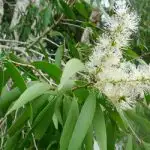 Niaouli (Melaleuca Viridiflora) oil is extracted through steam distillation of its fresh leaves and tender twigs.
Niaouli (Melaleuca Viridiflora) oil is extracted through steam distillation of its fresh leaves and tender twigs.
Niaouli oil benefits
- Helps with headaches and other types of pain;
- Gives relief from arthritis and gout.;
- kills bacteria;
- Repairs damaged skin;
- Opens up congestion;
- Kills insects;
- Kills intestinal worms;
- Treats yeast infections and candida;
- Shrink hemorrhoids;
Niaouli oil main uses
- diffuse it;
- apply topically diluted to 1%-3% with a carrier oil;
Side effects and notes:
- Do not take niaouli essential oil internally;
- May cause skin irritation in rare cases;
Niaouli oil has a very long history of uses and is still a popular ingredient in toothpaste and in mouth or bug sprays.
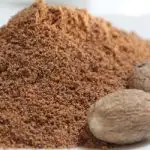 Nutmeg essential oil is obtained by steam-distilling the dried kernels of the ripe seeds of the nutmeg.
Nutmeg essential oil is obtained by steam-distilling the dried kernels of the ripe seeds of the nutmeg.
Nutmeg oil benefits
- Eliminates bad breath;
- Has a sedative and calming effect;
- Helps remove toxins;
- Can help relieve muscle pain, swelling, and inflammation;
- Helps remove toxins from your liver and kidneys;
- Improves skin conditions;
- Cures colds and asthma;
Nutmeg oil main uses
- diffuse it;
- can be added to foods in small amounts – 1 drop per cup;
- apply topically diluted to 1%-3% with a carrier oil;
Side effects and notes:
During the Elizabethan era, nutmeg oil was believed to be effective against the plague and gained great popularity, but with a high price as sellers took advantage of even the poorest by charging exorbitant prices for it.
 Orange essential oil is extracted from the fruit peels of sweet orange. D-Limonene is the most prominent active ingredient in orange oil (~90%). It is considered to be a powerful antioxidant that fights free radical damage and inflammation.
Orange essential oil is extracted from the fruit peels of sweet orange. D-Limonene is the most prominent active ingredient in orange oil (~90%). It is considered to be a powerful antioxidant that fights free radical damage and inflammation.
Orange oil benefits
- Fights chronic inflammation;
- Mild aphrodisiac;
- Contains powerful antimicrobial compounds;
- Effective for brightening your mood;
- Beneficial for fighting signs of aging;
- Fights acne;
- Fights gum inflammation;
Orange oil main uses
- diffuse it;
- add to your kitchen cleaning solution;
- apply topically diluted to 1%-10% with a carrier oil;
Side effects and notes:
- Steam distilled Orange essential oil is only mildly phototoxic but cold-pressed Orange oil may result in some skin allergies under direct sunlight;
- Do not use high concentrations to avoid allergic reaction;
Orange essential oil is used very often in cleaning products and in flavoring foods. The FDA recognizes it as safe for consumption (21CFR182.20), but this is only the case if you purchase a pure, unadulterated oil.
 Oregano essential oil is rich in the chemical components carvacrol and thymol, which are shared with thyme essential oil. It is a powerful, plant-derived essential oil that is just as effective as some antibiotics but with no harmful side effects.
Oregano essential oil is rich in the chemical components carvacrol and thymol, which are shared with thyme essential oil. It is a powerful, plant-derived essential oil that is just as effective as some antibiotics but with no harmful side effects.
Oregano oil benefits
- Fights infections and bacterial overgrowth including candida;
- Can Help expelling ;
- Can cure athlete’s foot fungal infection;
- Help battle congestion;
- Effective mosquito repellent;
- Strong antioxidant;
Oregano oil main uses
- diffuse it;
- can be taken by mouth – 1-4 drops per cup;
- apply topically diluted to 1%-3% with a carrier oil;
Side effects and notes:
 The name “Palmarosa” was given to the plant because of its fragrance similar to rose oil. This oil is most frequently used for skin care because of its moisturizing properties although it also has many other therapeutic uses.
The name “Palmarosa” was given to the plant because of its fragrance similar to rose oil. This oil is most frequently used for skin care because of its moisturizing properties although it also has many other therapeutic uses.
Palmarosa oil benefits
- Prevents inflammation of the skin;
- Strong anti-bacterial activity;
- Strong antiviral agent;
- Helps digestive system;
- Fights yeast;
- Capable of reducing fever;
Palmarosa oil main uses
- apply topically diluted to 1%-50% with a carrier oil;
- diffuse it;
Side effects and notes:
Palmarosa essential oil has been rated as “Generally Regarded as Safe” (GRAS) for internal consumption by the US FDA.
 Parsley (Petroselinum Sativum) is one of the oldest herbal spices known to man. Parsley essential oil is derived from its dried seeds by steam distillation.
Parsley (Petroselinum Sativum) is one of the oldest herbal spices known to man. Parsley essential oil is derived from its dried seeds by steam distillation.
Parsley oil benefits
- Relieves arthritis pain;
- Relieves constipation;
- Purifies the blood;
- Improves digestion;
- Treats indigestion, nausea, flatulence;
- Fights infections by on;
Parsley oil main uses
- diffuse it;
- apply topically diluted to 1%-3% with a carrier oil;
Side effects and notes:
- Large amounts taken internally may cause liver damage;
- Internal consumption in small (food) amounts is approved by FDA;
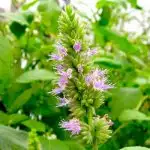 Patchouli Essential Oil is extracted by steam distillation of the leaves of the patchouli plant.
Patchouli Essential Oil is extracted by steam distillation of the leaves of the patchouli plant.
Patchouli oil benefits
- Strengthens hair;
- Enhances mood;
- Clears dandruff and skin conditions;
- Fights depression;
- Stops fungal growth;
- Reduces inflammation;
- Kills insects;
Patchouli oil main uses
- diffuse it;
- add to a bath;
- apply topically diluted to 1%-3% with a carrier oil;
Side effects and notes:
- Patchouli oil is regarded as safe when used in small amounts;
- Sometimes it is used as a dietary supplement although it is not included in the FDA “safe list“;
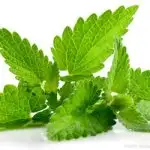 Peppermint oil derives from steam distillation of the fresh aerial parts of the flowering Peppermint plant – a hybrid of spearmint and water mint. Generally, peppermint oil is mostly recommended for its anti-nausea benefits and calming effects on the stomach lining and colon because of its ability to reduce muscle spasms.
Peppermint oil derives from steam distillation of the fresh aerial parts of the flowering Peppermint plant – a hybrid of spearmint and water mint. Generally, peppermint oil is mostly recommended for its anti-nausea benefits and calming effects on the stomach lining and colon because of its ability to reduce muscle spasms.
Peppermint oil benefits
- Freshens bad breath;
- Relieves headaches;
- Improves mental focus and memory;
- Boosts energy;
- Reduces stomachaches;
- Soothe digestive issues;
- May protect against cancer;
Peppermint oil main uses
- for baby teething mix 1:1 with a carrier oil and rub on the gums;
- diffuse it;
- apply topically diluted to 1%-3% with a carrier oil;
- to drink add 1 drop to your teacup;
Side effects and notes:
- Avoid ingesting Peppermint Essential Oil if you are taking any prescription medications;
- Peppermint Oil may reduce absorption of iron and quercetin supplements;
 Petitgrain oil is extracted from the fresh leaves and young and tender twigs of the orange tree through steam distillation. Due to its remarkable aroma, this oil is widely used in the perfume and cosmetics industries, and also in food and beverages as a flavoring agent.
Petitgrain oil is extracted from the fresh leaves and young and tender twigs of the orange tree through steam distillation. Due to its remarkable aroma, this oil is widely used in the perfume and cosmetics industries, and also in food and beverages as a flavoring agent.
Petitgrain oil benefits
- Inhibits bacterial growth (antiseptic);
- Reduces Anxiety;
- Treats insomnia (sedative);
- Maintain the oil-moisture balance of your skin;
- Helps curb nausea;
Petitgrain oil main uses
- diffuse it;
- add a few drops to your bath;
- apply topically diluted to 1%-3% with a carrier oil;
Side effects and notes:
FDA lists this oil as safe for internal use in small amounts
 Pine Needle oil is extracted from the needles of the Pinus sylvestris tree by the steam distillation process.
Pine Needle oil is extracted from the needles of the Pinus sylvestris tree by the steam distillation process.
Pine Needle oil benefits
- Anti-Inflammatory;
- Relieves headaches;
- Reduces Stress;
- Natural acne treatment;
- Reduce seasonal allergy symptoms;
- Natural home deodorizer;
- All-Purpose household cleaner;
Pine Needle oil main uses
- diffuse it;
- add to a cleaning spray;
- add to your bath 5-10 drops;
- apply topically diluted to 1%-3% with a carrier oil;
Side effects and notes:
- 100% pure therapeutic grade oil can be ingested with drinks or food in small quantities (1-2 drops per cup);
 Ravensara essential oil is a powerful oil from the island of Madagascar. For centuries, locals used this essential oil as a medicinal solution to fight infection.
Ravensara essential oil is a powerful oil from the island of Madagascar. For centuries, locals used this essential oil as a medicinal solution to fight infection.
Ravensara oil benefits
- Prevents bacterial infections and prevents sepsis;
- Reduces Depression;
- Enhances Libido;
- Reduces Stress;
- Helps with respiratory problems;
- Relieves many types of pain;
- Helps with toothaches and gums problems;
Ravensara oil main uses
- diffuse it;
- add to your bath;
- add a few drops to your mouthwash;
- apply topically diluted to 1%-3% with a carrier oil;
Side effects and notes:
 Roman chamomile essential oil is steam-distilled from the plant’s flowers. It is one of the most ancient and versatile essential oils.
Roman chamomile essential oil is steam-distilled from the plant’s flowers. It is one of the most ancient and versatile essential oils.
Roman Chamomile oil benefits
- Helps Alleviate PMS Symptoms;
- Promotes healthy sleep;
- Boosts Skin Health;
- Supports Digestive Health;
- Fights cancer;
- Promotes Heart Health;
- May Relieve Arthritic Pain;
- Fights Anxiety and Depression;
Roman Chamomile oil main uses
- diffuse it;
- apply topically diluted to 1%-3% with a carrier oil;
Side effects and notes:
 Rose essential oil is created through a process of steam distillation. Besides treating skin problems like acne or rosacea, this oil has been used for fighting depression and balancing hormones.
Rose essential oil is created through a process of steam distillation. Besides treating skin problems like acne or rosacea, this oil has been used for fighting depression and balancing hormones.
Rose oil benefits
- Fights depression;
- Reduces inflammation;
- kills viruses;
- Acts as an aphrodisiac;
- Can treat common skin problems;
- Eases menstruations;
- Provides a mild laxative effect;
Rose oil main uses
- diffuse it;
- can be added to foods and drinks (1 drop per cup);
- apply topically diluted to 1%-3% with a carrier oil;
Side effects and notes:
FDA lists Rose essential oils to be safe for ingesting in small amounts.
 Rosehip Essential oil comes from the seeds of the Rosa Rubiginosa or Rosa Mosqueta. Rosehip essential oil is considered to be a dry oil because it quickly absorbs into the skin without leaving behind any greasy residue.
Rosehip Essential oil comes from the seeds of the Rosa Rubiginosa or Rosa Mosqueta. Rosehip essential oil is considered to be a dry oil because it quickly absorbs into the skin without leaving behind any greasy residue.
Rosehip oil benefits
- Anti-Aging properties;
- Helps With Eczema and Reduces Scarring from Acne;
- Helps Reduce Osteoarthritis;
- Protection from Age Spots;
- Boosts the Immune System;
- Eliminates dandruff;
- Restores dry hair;
Rosehip oil main uses
- diffuse it;
- apply topically directly or diluted to 1%-50% with a carrier oil;
Side effects and notes:
Rosehip Essential oil is usually extracted either through cold-pressing or supercritical process that preserve the maximum amount of fatty acids, vitamins, and anti-oxidants.
Do not use Rosehip oil that was chemically extracted or steam distilled.
 Rosemary is one of the most powerful herbs and essential oils on the planet.
Rosemary is one of the most powerful herbs and essential oils on the planet.
Rosemary oil benefits
- Strong hair growth benefits;
- Improves memory;
- Lowers Cortisol;
- Promotes Liver detoxification and gallbladder function;
- Helps with depression;
- Removes bad breath and prevents gingivitis;
- Improves cognitive function;
- Repels and kills bugs;
Rosemary oil main uses
- diffuse it;
- apply topically diluted to 3%-5% with a carrier oil;
Side effects and notes:
 Rosewood oil is extracted from the woody matter of the rosewood tree and is widely used in the perfume industry.
Rosewood oil is extracted from the woody matter of the rosewood tree and is widely used in the perfume industry.
Rosewood oil benefits
- Relieves pain;
- Helps to treat colds, coughs, and sinusitis;
- Effective stress reliever;
- Works as an aphrodisiac;
- Heals wounds;
- Boosts memory;
Rosewood oil main uses
- diffuse it;
- add 5-10 drops to your bath;
- apply topically diluted to 1%-3% with a carrier oil;
Side effects and notes:
 This essential oil is extracted by steam distillation of sage leaves.
This essential oil is extracted by steam distillation of sage leaves.
Sage oil benefits
- Helps to eliminate scars;
- Promotes secretion of bile;
- Reduces inflammation on the skin;
- Fights bacterial infections;
- Inhibits fungal infections;
- Eliminates constipation;
- Provides relief from a cough, cold, and infections;
- Helps to manage dermatitis;
- Eliminates constipation;
Sage oil main uses
- diffuse it;
- apply topically diluted to 1%-3% with a carrier oil;
Side effects and notes:
 Sandalwood oil comes from the heart of the tree and consists of varieties of santalol molecules.
Sandalwood oil comes from the heart of the tree and consists of varieties of santalol molecules.
Sandalwood oil benefits
- Has sedative effect;
- Acts as an anti-inflammatory agent;
- Helps to keep skin clean;
- Good antiseptic;
- Has antioxidant ability;
Sandalwood oil main uses
- diffuse it;
- apply topically diluted to 1%-3% with a carrier oil;
Side effects and notes:
 Schisandra (Schisandra Sphenanthera) berry comes from a vine growing in China and eastern Russia. Schisandra has been shown scientifically to balance cortisol release and to prevent adrenal fatigue. It can increase energy levels and help focus the mind.
Schisandra (Schisandra Sphenanthera) berry comes from a vine growing in China and eastern Russia. Schisandra has been shown scientifically to balance cortisol release and to prevent adrenal fatigue. It can increase energy levels and help focus the mind.
Schisandra oil benefits
- Anti-inflammatory;
- Helps balance hormones naturally ;
- Improves liver function;
- Improves mental performance;
- Promote strong libido;
- May protect from Alzheimer’s;
Schisandra oil main uses
- diffuse it;
- internally – mix 1-2 drops with 2oz of honey or add to a cup of smoothie;
- apply topically diluted to 1%-3% with a carrier oil;
Side effects and notes:
- Do not use internally for more than 1 week in a row;
- Do not use internally if pregnant;
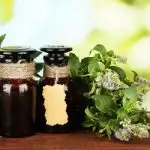 Spearmint essential oil is often used in flavoring mouthwash and chewing gum and is gentler than peppermint oil. This essential oil is often added to certain types of perfumes.
Spearmint essential oil is often used in flavoring mouthwash and chewing gum and is gentler than peppermint oil. This essential oil is often added to certain types of perfumes.
Spearmint oil benefits
- Speeds wound healing;
- Regulates menstruation;
- Effective insecticide;
- Relieves fevers;
- Helps with teeth problems;
- Reduces migraines;
- Eases spasmodic coughs and aches;
Spearmint oil main uses
- diffuse it;
- apply topically diluted to 1%-3% with a carrier oil;
Side effects and notes:
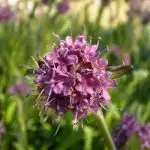 Spikenard essential oil is steam distilled from the roots of the plant called Nardostachys jatamansi which is native to the Himalayas.
Spikenard essential oil is steam distilled from the roots of the plant called Nardostachys jatamansi which is native to the Himalayas.
Spikenard oil benefits
- Treats indigestion;
- Helps reduce inflammation;
- Treats sciatica;
- Relieves menstrual discomfort;
- Relieves anxiety and stress;
- Treats insomnia;
- Treats Psoriasis and Eczema;
- Encourages new hair growth;
Spikenard oil main uses
- diffuse it;
- apply topically diluted to 3%-5% with a carrier oil;
Side effects and notes:
 Spruce oil is extracted through steam distillation from its needles.
Spruce oil is extracted through steam distillation from its needles.
Spruce oil benefits
- Relieves respiratory tract infections;
- Helps with exhaustion and chronic fatigue;
- Helps with dermatitis, eczema, psoriasis;
- Regulates the adrenal hormone;
- Strengthens the immune system;
Spruce oil main uses
- diffuse it;
- apply topically diluted to 1%-3% with a carrier oil;
Side effects and notes:
 Tangerine oil is extracted by cold compression of its peels. Botanical name (Citrus reticulata) for tangerines and mandarin oranges is the same.
Tangerine oil is extracted by cold compression of its peels. Botanical name (Citrus reticulata) for tangerines and mandarin oranges is the same.
Tangerine oil benefits
- Prevents sepsis;
- Purifies blood;
- Aids digestion;
- Relieves spasms;
- Provides calming effect ;
- Helps to eliminate cellulite;
- Speeds up metabolism helping weight loss;
Tangerine oil main uses
- diffuse it;
- apply topically diluted to 1%-3% with a carrier oil;
Side effects and notes:
- Do not expose your skin to direct sun or UV light after applying tangerine oils for 12-24 hours;
- Tangerine oil is approved for internal consumption by FDA (in small amounts – 1-2 drops per cup);
 Tarragon Essential Oil is extracted by steam distillation of Tarragon’s leaves and flowering tops.
Tarragon Essential Oil is extracted by steam distillation of Tarragon’s leaves and flowering tops.
Tarragon oil benefits
- Helps digestive system;
- Treats arthritis;
- Stimulates blood circulation;
- Eliminates bad odor;
- Kills intestinal worms;
Tarragon oil main uses
- apply topically diluted to 1%-3% with a carrier oil;
Side effects and notes:
- Do not ingest it – estragole is poisonous;
- This oil should only be used externally mixed with carrier oils;
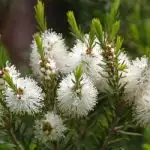 Tea Tree (Melaleuca) Essential Oil is extracted through steam distillation of twigs and leaves of tea tree. Tea tree oil can be used as a cure for almost all tropical infections and diseases.
Tea Tree (Melaleuca) Essential Oil is extracted through steam distillation of twigs and leaves of tea tree. Tea tree oil can be used as a cure for almost all tropical infections and diseases.
Tea Tree oil benefits
- Fights bacterial infections;
- A natural eczema treatment;
- Cold sores;
- An effective remedy for acne;
- Fights toenail fungus;
- Kills mold;
- Promotes hair growth;
- Promotes oral health;
Tea Tree oil main uses
- diffuse it;
- apply topically diluted to 1%-3% with a carrier oil;
Side effects and notes:
- This oil should NOT be ingested in any quantities;
- Always rinse your mouth after using it for dental purposes;
 Thyme Essential Oil is extracted from thyme (Thymus vulgaris), a member of the mint family, commonly used in cooking, mouthwashes, and aromatherapy.
Thyme Essential Oil is extracted from thyme (Thymus vulgaris), a member of the mint family, commonly used in cooking, mouthwashes, and aromatherapy.
Thyme oil benefits
- Kills bacteria and infections;
- Treats respiratory conditions;
- Cures gum disease;
- Effective bug repellent;
- Eases stress and anxiety;
- Treats fibroids;
- Has progesterone balancing effects;
- Helps with arthritis, gout;
Thyme oil main uses
- diffuse it;
- add 1-2 drops to mouthwash bottle;
- apply topically diluted to 1%-3% with a carrier oil;
Side effects and notes:
- Although Thyme Essential Oil is listed by FDA as safe for internal consumption, it is not recommended for prolonged use even in smallest quantities;
- Do not take internally if pregnant or breastfeeding;
*Thyme Oil is in the list of essential oils for hair growth
 In South Asia turmeric has been used for centuries as a natural remedy to treat skin conditions including reducing blemishes, curbing acne and scars, and stopping facial hair growth in women.
In South Asia turmeric has been used for centuries as a natural remedy to treat skin conditions including reducing blemishes, curbing acne and scars, and stopping facial hair growth in women.
Turmeric oil benefits
- Fights acne;
- Helps fighting colon cancer, leukemia, breast cancer;
- Promotes hair growth;
- Helps to get rid of dandruff;
- Improves brain and cognitive function;
- Fights inflammation;
- Fights inflammation;
- Helps with depression;
- Helps with rheumatoid arthritis;
Turmeric oil main uses
- diffuse it;
- apply topically diluted to 1%-3% with a carrier oil;
Side effects and notes:
- May cause irritation and other side effects if taken internally – consult your doctor before;
- FDA lists this oil as safe for consumption in small amounts;
 One of the oldest and most studied benefits of valerian essential oil is its ability to curb stress and improve the quality of sleep.
One of the oldest and most studied benefits of valerian essential oil is its ability to curb stress and improve the quality of sleep.
valerian oil benefits
- Stops teeth grinding;
- Relieves anxiety;
- Improves cognitive function;
- Relieves depression;
- Improves stomach health;
- Prevents skin wrinkles;
- Reduces menstrual cramps;
- Regulates blood pressure;
Valerian oil main uses
- diffuse it;
- add 1 drop to your teacup;
- apply topically diluted to 1%-3% with a carrier oil;
Side effects and notes:
 Verbena oil or Lemon Verbena is steam distilled from the leaves of this plant, which is indigenous to the rainforests of Chile.
Verbena oil or Lemon Verbena is steam distilled from the leaves of this plant, which is indigenous to the rainforests of Chile.
Verbena oil benefits
- Can reduce stress;
- Provides a relief from gastric pain;
- Helps to relieve a cough;
- Can lower oxidative stress and boost immunity;
- May reduce inflammation;
- Fights acne and skin problems;
- Helps to relieve the symptoms of hemorrhoids;
Verbena oil main uses
- diffuse it;
- add 1-2 drops to a teacup;
- apply topically diluted to 1%-3% with a carrier oil;
Side effects and notes:
- Lemon verbena oil is commonly mixed with water to create tea;
- Lemon verbena essential oil is not recommended for the consumption and use of children and pregnant or breastfeeding women;
 Vetiver essential oil is derived from the steam distillation of the plant’s roots. It has a strong herbaceous and spicy initial aroma.
Vetiver essential oil is derived from the steam distillation of the plant’s roots. It has a strong herbaceous and spicy initial aroma.
Vetiver oil benefits
- Can be effective for relieving symptoms of ADHD;
- Heals scars and marks on the skin;
- Effective bug repellant;
- Helps to mitigate the side effects of chemotherapy;
- Helps to enhance libido;
- Has antiseptic properties;
- Helps with arthritis;
- Repels termites;
Vetiver oil main uses
- diffuse it;
- add 5-10 drops to your bath;
- apply topically diluted to 1%-3% with a carrier oil;
Side effects and notes:
 Wintergreen Essential Oil is popular among the people suffering from rheumatism, arthritis, gout, and pain in their bones and joints. The essential oil of this plant is extracted by steam distillation of its leaves.
Wintergreen Essential Oil is popular among the people suffering from rheumatism, arthritis, gout, and pain in their bones and joints. The essential oil of this plant is extracted by steam distillation of its leaves.
Wintergreen oil benefits
- Can reduce muscle pain;
- Fights arthritis;
- Prevents microbial infections;
- Stimulates blood circulation;
- Can reduce hunger and cravings;
- Helps to fight acne;
Wintergreen oil main uses
- diffuse it;
- add 5-10 drops to your bath;
- apply topically diluted to 1%-3% with a carrier oil;
Side effects and notes:
 Wormwood Essential Oil is extracted by steam distillation of its leaves, twigs, and flowering tops. Wormwood is often used to eliminate intestinal worms, especially roundworms and pinworms.
Wormwood Essential Oil is extracted by steam distillation of its leaves, twigs, and flowering tops. Wormwood is often used to eliminate intestinal worms, especially roundworms and pinworms.
Wormwood oil benefits
- Effective insecticide;
- Kills intestinal worms;
Wormwood oil main uses
- do NOT diffuse it for a prolonged period of time;
- apply topically diluted to 1%-2% with a carrier oil;
Side effects and notes:
- Prolonged use can result in permanent damage to the brain and the nervous system;
- It does have narcotic effects and is highly addictive;
With all these warnings, there is an alcoholic drink with wormwood called Absinthe which was banned in the US from 1905 to 2007. Now, it is legally manufactured and sold in the US without thujone – a neuro-toxic component.
Always consult your doctor before considering using or taking any supplements containing Wormwood!
 Yarrow Essential Oil is extracted by steam distillation of the dried plant.
Yarrow Essential Oil is extracted by steam distillation of the dried plant.
Yarrow oil benefits
- Anti-inflammatory;
- Anti-Rheumatic;
- Anti-Spasmodic;
- Helps in the removal of toxins;
- Improves digestion;
- Can treat varicose veins;
- Helps with acne and other skin problems;
Yarrow oil main uses
- diffuse it;
- apply topically diluted to 1%-3% with a carrier oil;
Side effects and notes:
- Don’t use if pregnant;
- Avoid using high doses;
- Don’t use for prolonged periods of time to avoid headaches;
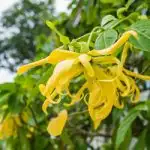 Ylang-ylang (Cananga odorata) Essential Oil is extracted by steam distillation of fresh flowers of the ylang-ylang tree
Ylang-ylang (Cananga odorata) Essential Oil is extracted by steam distillation of fresh flowers of the ylang-ylang tree
Ylang-ylang oil benefits
- Antidepressant;
- Antiseptic;
- Aphrodisiac;
- Lowers High Blood Pressure;
- Sedative;
- Thickens and restores hair;
- Diabetes fighter;
Ylang-ylang oil main uses
- diffuse it;
- add 1-2 drops to drink or food;
- apply topically diluted to 1%-3% with a carrier oil;
Side effects and notes:
 Zedoary Essential Oil is obtained from the rhizomes of Curcuma Zedoaria through steam distillation. It is one of the most widely used ingredients in the perfumery and food flavor industry.
Zedoary Essential Oil is obtained from the rhizomes of Curcuma Zedoaria through steam distillation. It is one of the most widely used ingredients in the perfumery and food flavor industry.
Zedoary oil benefits
- Excellent digestive aid;
- Treats respiratory problems;
- Relieves pain and inflammation;
- Fights against cancer;
- Used as a mosquito repellant;
Zedoary oil main uses
- diffuse it;
- add 1-2 drops to your drink;
- apply topically diluted to 1%-3% with a carrier oil;
